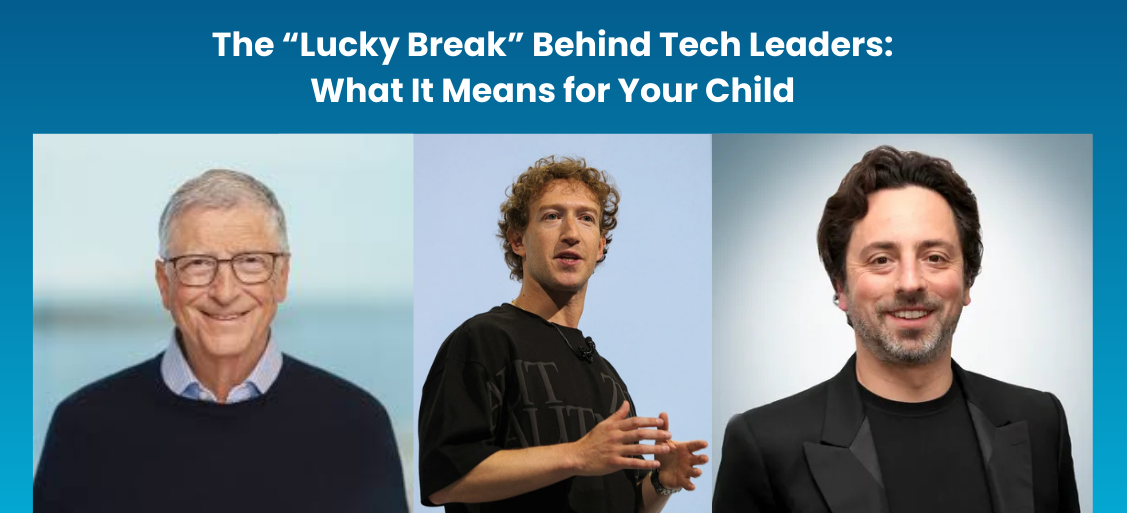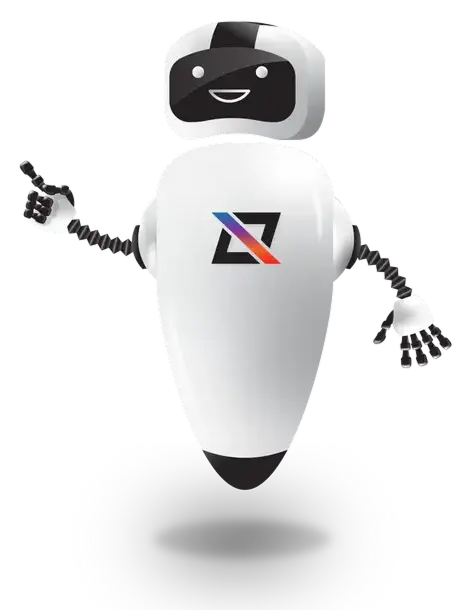
What do Sergey Brin, Mark Zuckerberg, and Bill Gates have in common-besides changing the world with technology? Each of them had a chance to explore computers and programming way earlier than most of their generation, and that early spark made all the difference.
Sergey Brin’s story starts as a young immigrant from Moscow, settling in Maryland. His father, a mathematics professor, made sure Sergey had access to a computer at home, and by age 9, Sergey was already tinkering with a Commodore 64. That early curiosity and hands-on experience set him on a path to co-founding Google, a company that would redefine how we all access information.
Mark Zuckerberg’s journey is equally inspiring. By the time he was 11, Mark had already created “ZuckNet,” a simple messaging program that connected the computers at his house and his dad’s dental office. While some kids played computer games, Mark was busy making them. This early start in programming didn’t just give him a head start- it gave him the confidence and skillset to build Facebook before he was even out of college.
And then there’s Bill Gates, who described his story as a “lucky break.” In the late 1960s, when most people had never seen a computer, Bill’s school invested in a teletype terminal. Bill was just 13 years old when he first got his hands on it. He and his friends would sneak out of bed at night just to get more computer time, sometimes programming until two in the morning. Bill has said that this early access was a turning point, giving him hundreds of hours of programming experience before most kids even knew what a computer was.

In his new memoir Source Code, Gates writes, “We were kids … none of us had any real computer experience.” He adds: “Without that lucky break of free computer time — call it my first 500 hours — the next 9,500 hours might not have happened at all.” That “lucky break” set the stage for Microsoft and the software revolution that followed.
Why does this matter for today’s kids? Early exposure to technology can be a game-changer. When children get to experiment with coding, robotics, and digital design before high school, they’re not just learning new skills—they’re learning how to solve problems, think creatively, and work as a team. These experiences build confidence and spark a passion that can last a lifetime.
Today, hands-on STEM programs for elementary and middle schoolers are more engaging than ever. Kids can design their own games, build robots, and even program drones – all in a fun, interactive environment that feels more like play than school. With instructor-led lessons, evolving curricula that keep pace with the latest tech, and lots of opportunities for teamwork and creativity, young learners can discover their own “lucky break.” They don’t have to wait until high school or college to start building the skills that could shape their future.
As parents, giving your child the chance to explore technology early isn’t just about preparing them for a job – it’s about opening doors to new ways of thinking and creating. Who knows? The next Sergey, Mark, or Bill could be sitting at your kitchen table right now, just waiting for that first spark.
Are you curious about what early tech exposure could do for your child? Browse icodewestchase.com for more information about our summer camps and belt program, or book a free trial class. If you have any questions, email us at westchase@icodeschool.com or call 813-825-2212!
Author: Jennifer Kowski
May 6, 2025


